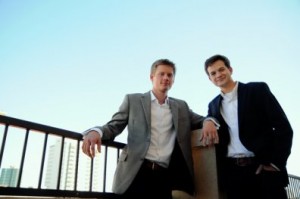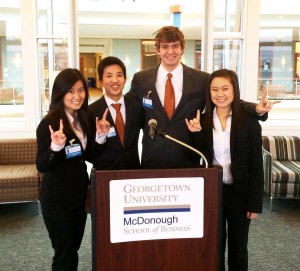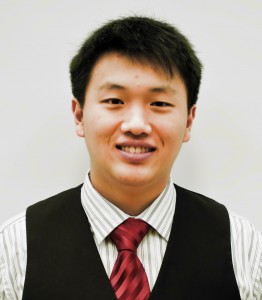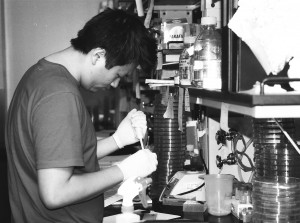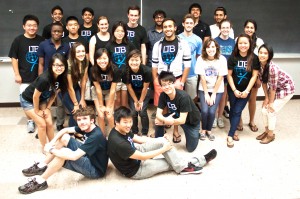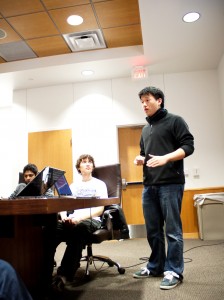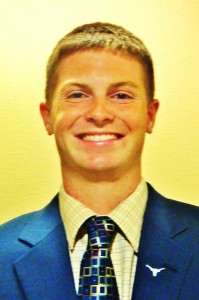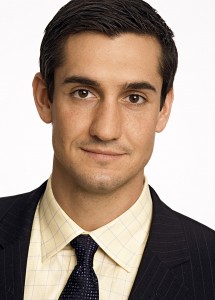 Ty Cobb, BHP ’03, is the Director of Global Engagement at the Human Rights Campaign (HRC). Ty works to advance equality for lesbian, gay, bisexual, and transgender (LGBT) people around the world. Prior to launching HRC’s global initiative, he was instrumental in passing the Hate Crimes Prevention Act, the repeal of “Don’t Ask, Don’t Tell,” and an LGBT-inclusive Violence Against Women Act in his role as legislative counsel for HRC and while working for Senator Edward Kennedy.
Ty Cobb, BHP ’03, is the Director of Global Engagement at the Human Rights Campaign (HRC). Ty works to advance equality for lesbian, gay, bisexual, and transgender (LGBT) people around the world. Prior to launching HRC’s global initiative, he was instrumental in passing the Hate Crimes Prevention Act, the repeal of “Don’t Ask, Don’t Tell,” and an LGBT-inclusive Violence Against Women Act in his role as legislative counsel for HRC and while working for Senator Edward Kennedy.
You received your undergraduate degree and law degree from UT. How do you think UT and BHP prepared you for your career?
I’ve been a lawyer, lobbyist, congressional staffer, public speaker, program director, and manager. All of these roles required different skills, and many of those required were things I learned in BHP. My business background has given me a unique perspective in each of these roles. And, all those case studies were certainly helpful when planning for and launching a new program at the Human Rights Campaign.
What was your career progression after graduating from law school?
I went directly to Bracewell & Giuliani in Dallas where I worked for a year. I then moved to another firm in Washington, DC, Sidley Austin. I stayed there until I began as counsel to Senator Edward Kennedy, where I worked to secure passage of the Hate Crimes Prevention Act in the Senate. It was my first experience working on LGBT rights, but one I’ll always remember. After Senator Kennedy died, I became a lawyer and lobbyist at HRC for several years before getting the opportunity to launch a global program.
What new challenges do you face in this new role in global engagement?
Starting a new initiative from scratch has been a huge challenge. It has been an entrepreneurial adventure, and an opportunity for personal growth. Aside from that, it’s emotionally draining to see some of the more horrific situations LGBT people face across the world. Nearly 80 countries criminalize same-sex relationships – five of which actually punish individuals with death. And, on top of criminalization, several countries have now begun to outlaw public advocacy for LGBT rights. Transgender individuals, as well as those who are lesbian, gay and bisexual, face violence and persecution, some of which is government sanctioned or even condoned by the victim’s family.
There is a lot going on right now with the LGBT rights movement. What is it like being on the front lines of the fight for equality?
Nearly every day is filled with a new dramatic twist or turn. While several countries took big leaps forward last year with marriage equality and strengthening transgender rights, countries like Russia, Uganda, and Nigeria took huge steps backwards. The world is being pulled in two directions and I’m glad to be part of the momentum pulling us closer to a world where individuals aren’t denied their human rights because of who they love or who they are. One of the most rewarding aspects of my job has been meeting human rights defenders from around the world who have become the catalysts for change in their home countries.
What are you spending most of your time on in your new role?
As the LGBT community has gained ground in the U.S., our opposition has lost its momentum. Their decades-long winning streak at the ballot box ended in 2012 when we gained marriage equality in Maine, Washington, and Maryland. As such, in 2013, we started to see anti-LGBT Americans – like Brian Brown of the National Organization for Marriage – spending more time abroad preaching intolerance and promoting junk science. There is a growing American industry of exporting hate. And dozens of Americans and American organizations are involved in the industry. At this current moment, I’m fixated on a project to expose, combat, and counter the messages of these Americans.
What has been the most meaningful achievement in your career so far?
Being part of the repeal of “Don’t Ask, Don’t Tell.” DADT repeal was the first issue I worked on at HRC, and I became extremely close with many of the service members who lost their careers because of DADT. Many of the folks affected by DADT had spent decades serving their country only to be discharged because of who they love. The law made no sense. Repeal of the law provided the opportunity for so many in the community to heal from the experience of being told by our government that they were less than equal simply because they were gay or lesbian.
What is your pie in the sky goal for your time at the HRC?
From Cameroon to Jamaica, there are LGBT activists who are fighting to combat violence, stigma, and discrimination just because of who they are. While the laws in each country and culture may differ, these activists are working towards the goal of full inclusion and equality for fully realized LGBT lives around the world. I would like to see HRC play a pivotal role in connecting the work of activists to build a stronger, more connected global equality movement.
What advice would you have for current BHP students?
Unless you’re in the minority, you probably don’t know where you’ll be in ten years. You don’t know what opportunities will open up before you. It’s important to constantly challenge yourself to gain new skills so that you can take advantage of opportunities when they arise. If you feel comfortable in what you’re doing, it’s time to do more. I grew the most as a professional when I put myself into extremely uncomfortable situations that made me do things that I wasn’t particularly thrilled to be doing – public speaking, networking outside my usual circles, taking on monstrous writing projects, and such.


